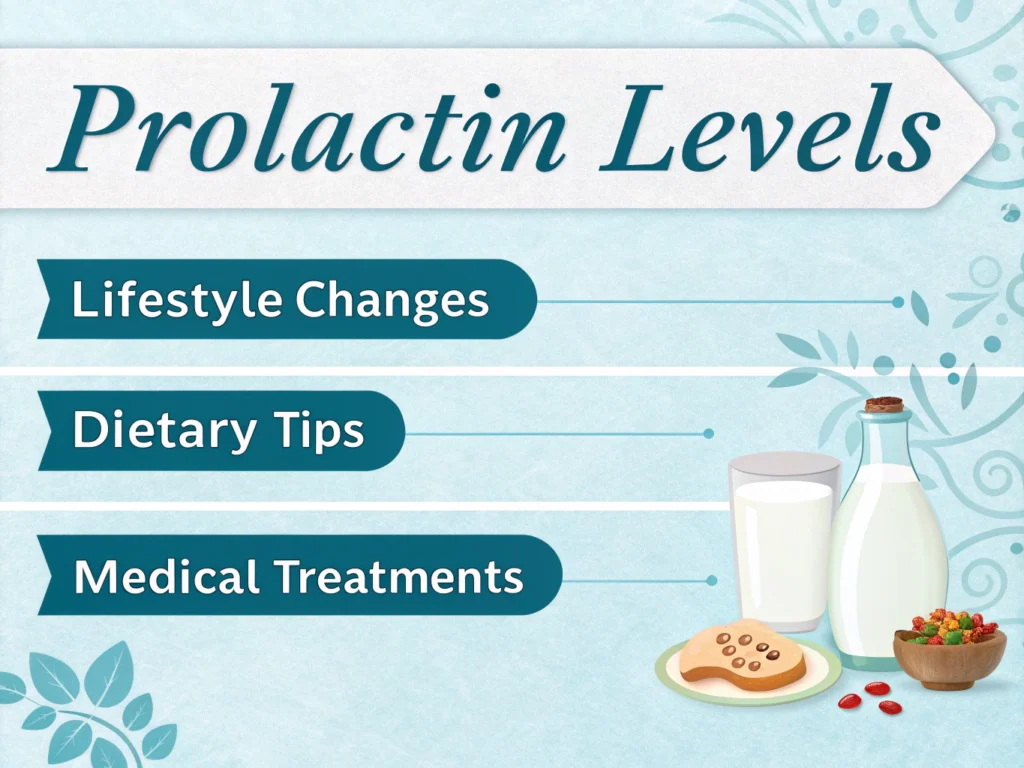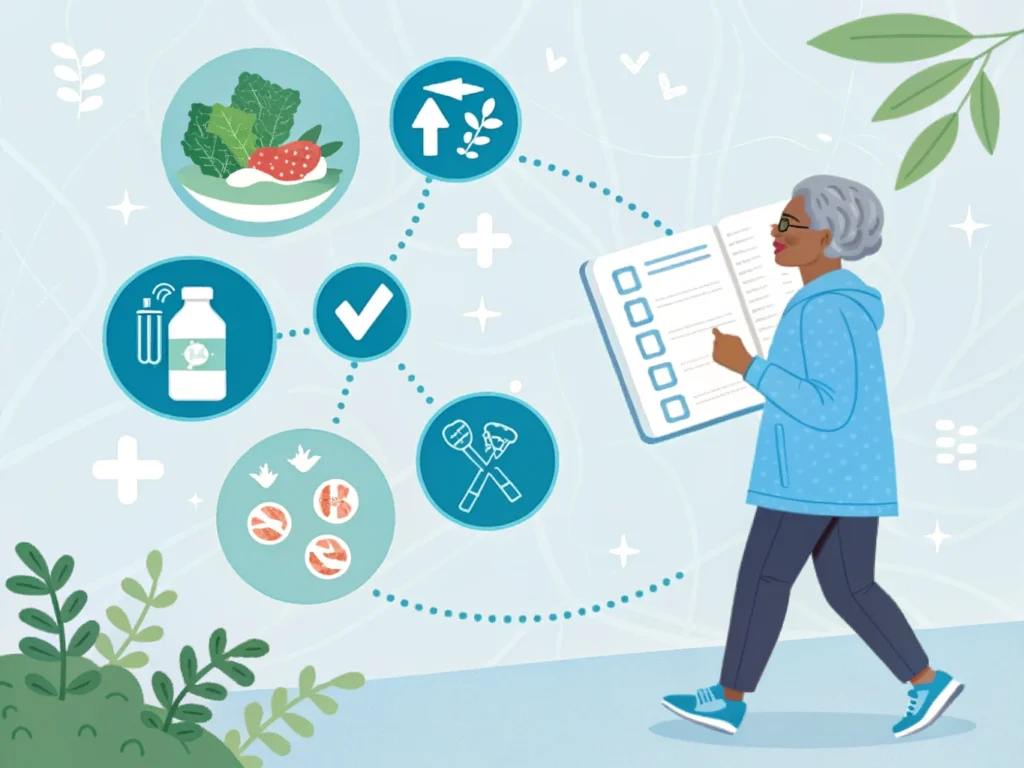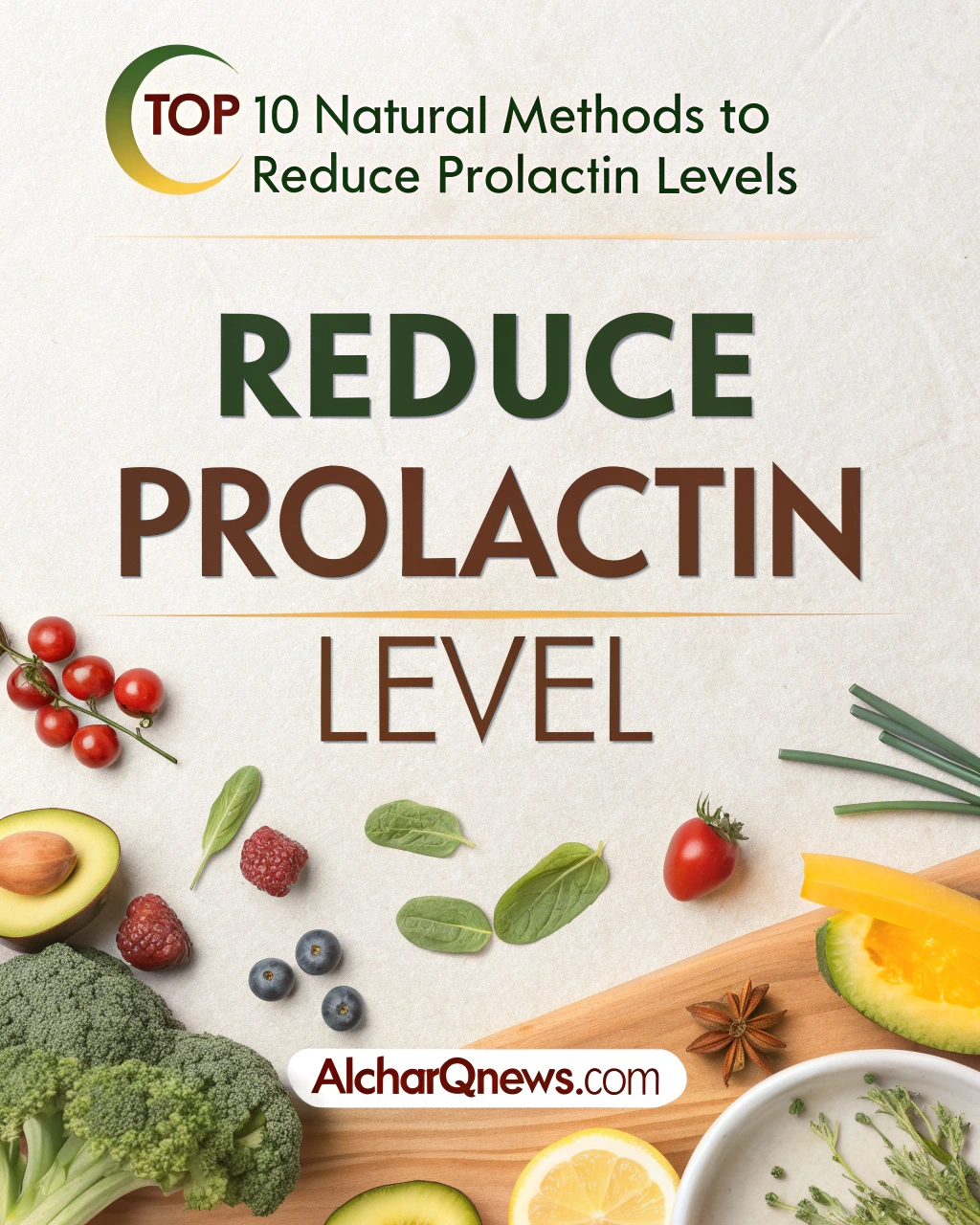Feeling Off Balance? It Coule Be Your Prolactin Levels
Have you been feeling unusually fatigued, emotionally overwhelmed, or struggling with unexplained weight gain? Maybe your menstrual cycle is irregular, or your libido has taken a nosedive. If these signs sound familiar, there might be something more going on inside your body: high prolactin levels.
Prolactin is a hormone secreted by the pituitary gland. It plays an essential role in reproductive health and, in women, supports milk production after childbirth. But when your body produces too much prolactin—a condition known as hyperprolactinemia—it can disrupt your hormone balance, mood, and even fertility.
Thankfully, you don’t have to jump straight to medications. There are effective, natural methods to reduce prolactin levels. Here’s a detailed guide to help you take back control of your hormonal health.
Table of contents
What is Prolactin and Why Is It Important?
The Basics of Prolactin
- Prolactin is a hormone secreted by the pituitary gland.
- It’s vital for lactation in women but also exists in men and non-lactating women.
- Normal prolactin levels range from:
- 4-23 ng/mL in men
- 5-25 ng/mL in non-pregnant women
Symptoms of High Prolactin
- Irregular or absent periods
- Infertility
- Breast discharge (in both men and women)
- Low libido
- Mood swings and depression
Causes of Elevated Prolactin
- Stress
- Certain medications (antidepressants, antipsychotics)
- Thyroid dysfunction
- Pituitary tumors (prolactinomas)
- Estrogen dominance

1. Manage Stress and Reduce Cortisol
Stress is one of the leading causes of hormone disruption, and it has a direct effect on prolactin production. When you’re stressed, your body releases cortisol, which can stimulate the pituitary gland to secrete more prolactin.
How You Can Reduce Stress:
- Practice daily meditation or mindfulness
- Deep breathing exercises (try 4-7-8 breathing technique)
- Gentle yoga or stretching
- Journaling for emotional release
- Spend time in nature or with loved ones
Key Insight: Lowering cortisol naturally helps regulate prolactin.
2. Get Enough Sleep
You may not realize it, but sleep has a huge influence on your hormone regulation. Prolactin levels are naturally higher during sleep. But poor sleep habits can throw this rhythm off, contributing to persistently high levels during the day.
Tips for Better Sleep:
- Keep a consistent sleep schedule (even on weekends)
- Avoid screens 1 hour before bed
- Use blackout curtains or an eye mask
- Consider drinking herbal teas such as chamomile or valerian root.
3. Boost Dopamine Naturally
Dopamine acts as a natural suppressor of prolactin. When your dopamine levels are low, prolactin can rise unchecked.
Ways to Raise Dopamine:
- Eat foods rich in tyrosine: almonds, avocados, bananas
- Engage in activities you enjoy
- Regular exercise
- Listen to music that lifts your mood
Supplements That May Help:
- L-Tyrosine
- Mucuna Pruriens (contains natural L-Dopa)
4. Increase Vitamin B6 Intake
Vitamin B6 is essential for dopamine production. If you’re low on B6, you might not be producing enough dopamine to keep prolactin in check.
Foods High in B6:
- Chickpeas
- Salmon
- Potatoes
- Bananas
Recommended Daily Intake:
- Adults: 1.3 to 2.0 mg
- Speak to a healthcare provider before using B6 supplements
| Food Source | B6 Content (per serving) |
|---|---|
| Chickpeas (1 cup) | 1.1 mg |
| Salmon (3 oz) | 0.6 mg |
| Banana (1 medium) | 0.4 mg |
5. Use Vitex (Chasteberry)
Vitex is a traditional herb known to support hormonal balance, particularly in women. It works by influencing the pituitary gland to reduce prolactin production.
How to Take Vitex:
- Capsules: 400-1000 mg per day
- Tincture: 30-40 drops in water, once daily
Tip: Vitex is best taken in the morning on an empty stomach.
6. Support Thyroid Function
A sluggish thyroid (hypothyroidism) can lead to elevated prolactin levels. This happens because your body tries to compensate by producing more thyroid-stimulating hormone (TSH), which may also increase prolactin.
Boost Your Thyroid Naturally:
- Include iodine-rich foods (seaweed, eggs)
- Make sure to get enough selenium by consuming foods like Brazil nuts and sunflower seeds.
- Avoid goitrogens (raw cruciferous veggies) if thyroid is underactive
7. Reduce Estrogen Dominance
Too much estrogen can trigger higher prolactin levels. Estrogen dominance can happen due to poor diet, liver congestion, or exposure to endocrine-disrupting chemicals.
How to Balance Estrogen:
- Eat fiber-rich foods (flaxseeds, leafy greens)
- Support liver detox (dandelion tea, turmeric)
- Avoid plastic containers and non-organic dairy

8. Eliminate High-Prolactin Trigger Foods
Certain foods can increase inflammation or mimic estrogen, which may lead to higher prolactin.
Foods to Avoid:
- Refined sugar
- Processed soy
- Alcohol
- Non-organic dairy
Foods to Favor:
- Cruciferous vegetables (broccoli, kale)
- Healthy fats (olive oil, avocados)
- Antioxidant-rich berries
9. Try Maca Root for Hormone Balance
Maca is a powerful adaptogen from the Andes that can help balance hormone levels and improve your mood and energy.
Maca Benefits:
- Supports endocrine system
- Boosts libido
- Improves mood
How to Use:
- Start with 1 tsp/day and gradually increase to 1 tbsp
- Add to smoothies, oatmeal, or tea
10. Exercise Smartly
While exercise is fantastic for hormonal health, overtraining can actually spike cortisol and disrupt your balance.
Best Types of Exercise:
- Brisk walking
- Light strength training
- Dancing or swimming
- Pilates and yoga
Tip: Aim for 30 minutes, 4-5 times per week.
Quick Reference Table: 10 Natural Ways to Lower Prolactin
| Method | Key Action | Why It Works |
|---|---|---|
| Stress Reduction | Meditate, breathe | Lowers cortisol |
| Sleep Quality | 7-9 hrs nightly | Regulates rhythm |
| Dopamine Boost | Fun activities, protein | Inhibits prolactin |
| Vitamin B6 | Eat B6-rich foods | Dopamine support |
| Vitex | Take daily | Pituitary support |
| Thyroid Health | Eat iodine, selenium | Corrects root issue |
| Lower Estrogen | High-fiber, detox | Reduces stimulation |
| Clean Diet | No dairy/sugar | Reduces triggers |
| Maca Root | Use daily | Hormone adaptogen |
| Smart Exercise | Moderate routine | Hormonal balance |
Frequently Asked Questions (FAQs)
How can I tell if my prolactin levels are high?
You might notice irregular periods, low libido, or mood swings. A simple blood test can confirm it.
Can high prolactin affect fertility?
Yes. Elevated prolactin can interfere with ovulation and lead to infertility.
Is it safe to try natural remedies for prolactin?
In many cases, yes. But always consult your healthcare provider before starting herbs or supplements.
How long does it take to lower prolactin naturally?
Depending on the cause and consistency, some people see results within weeks, while others take a few months.
Conclusion: Take Charge of Your Hormones Today
Balancing your hormones might feel overwhelming, but it doesn’t have to be. By addressing the root causes and making a few intentional changes to your lifestyle, you can significantly reduce prolactin levels and feel like yourself again.
Start with just one or two changes from the list above. As your body starts to respond, you can layer in additional methods that support your unique needs.
Ready to Feel Balanced Again?
If this guide helped you, share it with someone who needs to

